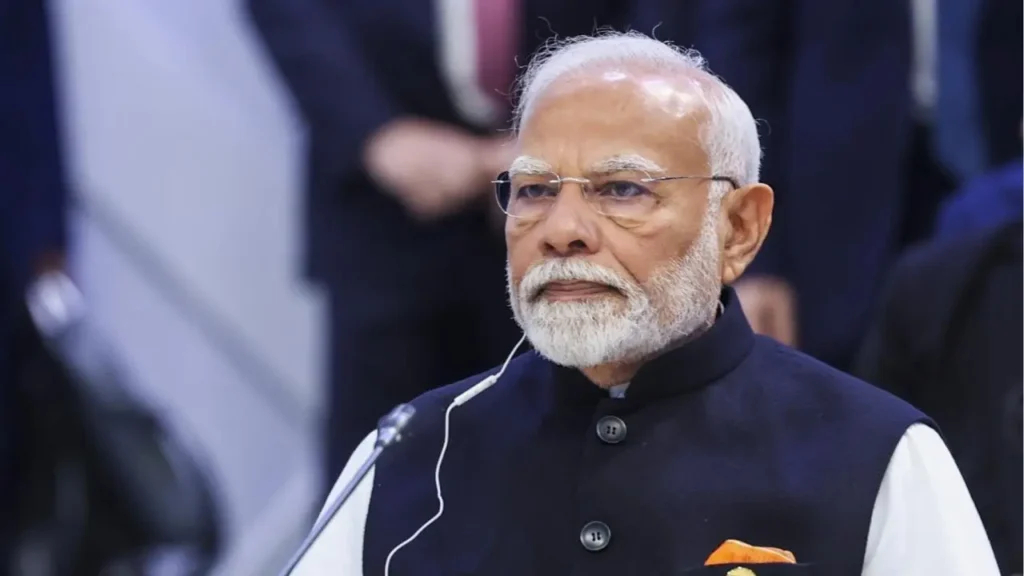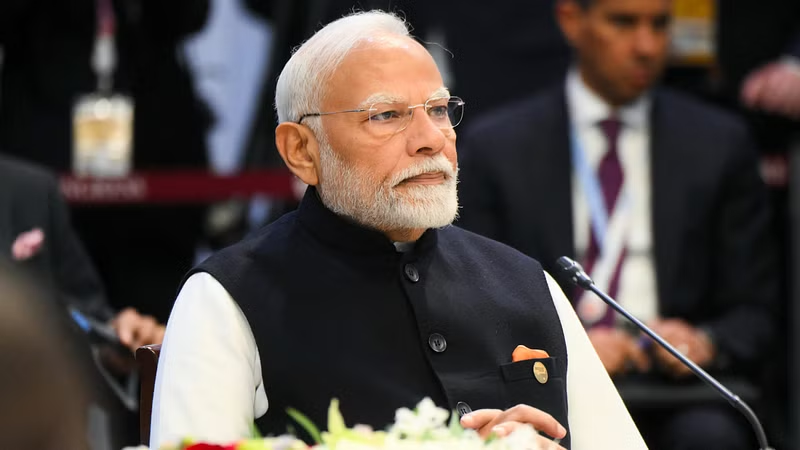Key Highlights:
The 16th BRICS Summit in Kazan, Russia, was an opportunity for the Indian Prime Minister Narendra Modi to strike a clear and loud note in the confused world of war. In his speech to the leaders of Brazil, Russia, China, and South Africa, Modi addressed some of the pressing global concerns on war, peace, and development: “India supports dialogue and diplomacy and not war.” This statement came across as a clarion call towards the promotion of a more collaborative and peaceful world order where multilateral interactions may offer avenues for resolving conflicts .
A Multilateral Approach to Global Challenges
Formed of the five major emerging nations of the world, BRICS indeed speaks with great might in global decision-making. This was perhaps the importance of the speech: today’s contemporary challenges-geo-political conflicts, economic insecurities, climatic indecencies, and the constant terrorism-the BRICS nations, through the strengthening of multilateralism, are alone capable of finding solutions to these issues and presenting them in a collective manner to the world, according to Modi.

In a nutshell from the speech: India believes that most entrenched conflicts can be resolved through dialogue and diplomacy. Modi’s statement stands true in today’s day and age when war rages between Russia and Ukraine and India rightly comes out sternly for peace talks instead of military imbroglio.
India-Russia Relation: A Fine Balancing Act
Modi’s interaction with Russian President Vladimir Putin was the most keenly watched event of the summit. India has been delivering a very nuanced message on the Russia-Ukraine war. Nowhere has it outright condemned Moscow, but repeatedly called for peace. The message of peace by Modi to Putin has been foretold long ago – war is not a solution, and the sense of real peace can be only achieved if there is dialogue.

The global leaders, both from the West and elsewhere, have welcomed this stance of Modi’s, with greater pressure being mounted on India to take a firmer stand against Russia. But Modi has been able to tread this thin line without differentiating in maintaining the strategic relations with Russia and, at the same time, looking at some sort of mediatory role for peace.
Expansion of BRICS and Influence Around the Globe
In addition to a debate on the resolution of conflict, the summit was to expand the BRICS bloc into another member, enhancing the powers of the group in the worldwide hierarchy. Modi welcomed this very expansion and noted India’s commitment to the growth of a more inclusive global economy. New members may well assist in further consolidating the role of the group as a counterweight against the Western hegemony in international organizations such as the G7.
Indian support for the BRICS expansion clearly dovetails with India’s larger vision in geopolitical terms. India is one of the emergent crucial leaders in the Global South and in the BRICS bloc, and this bloc is actively promoting a world where emerging economies increasingly hold more leadership positions in structures of global governance.
Economic Cooperation and Technology as Future Drivers
Apart from geopolitical issues, Modi also focused on the economy, especially on post-pandemic recovery and technological progress. He encouraged BRICS nations to be cooperative in building economic opportunities that might attract various member states. BRICS will change the world if greater cooperation can be shaped in fields like digital transformation, green energy, or artificial intelligence to be the main driver of global economic growth.
Modi’s technology collaboration push aligns well with India’s aspirations of emerging as a tech and innovation center. With the IT sector in India witnessing rapid growth and an equally burgeoning landscape of startups, Modi thinks BRICS nations should march ahead hand-in-hand and be at the forefront of the next big technological changes that are bound to happen.
Conclusion: India’s Role in Global Peace
Addressing the BRICS Summit, Prime Minister Modi repeated India’s time-tested foreign policy of peaceful coexistence and cooperation. In a world hostage to wars and growing economic uncertainty, Modi’s call for dialogue and diplomacy offers a positive way forward. As BRICS has taken great importance, and India is engaged prominently at both levels, Indian leadership will be crucial in promoting multilateralism and shaping a peaceful and equitable world order.
As BRICS continues to expand and gain its footing abroad, it’s in this diplomacy that Modi envisioned peace, which will characterize India’s engagement with the world. The 2024 summit reaffirmed India’s commitment to cooperation among nations in search of solutions to critical issues around the globe.
For Latest News Updates Click Here
